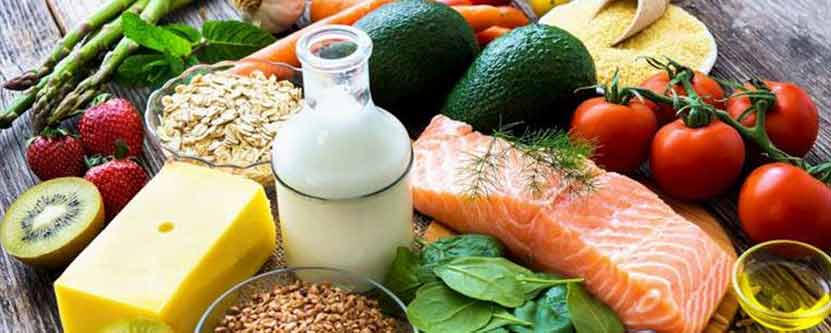A balanced diet is a diet that contains differing kinds of foods in certain quantities and proportions so that the requirement for calories,
[the_ad id=”6082″]
proteins, minerals, vitamins and alternative nutrients is adequate and a small provision is reserved for additional nutrients to endure the short length of leanness. In addition, a balanced diet ought to offer bioactive phytochemicals like dietary fiber, antioxidants and nutraceuticals that have positive health advantages. A balanced diet should offer around 60-70% of total calories from carbohydrates, 10-12% from proteins and 20-25% of total calories from fat.
HEALTH BENEFITS OF A BALANCED DIET
Healthy eating increases energy, improves the way your body functions, strengthens your immune system and prevents weight gain. The other major benefits are:
- Meets your nutritional need. A varied, balanced diet provides the nutrients you need to avoid nutritional deficiencies.
- Prevent and treat certain diseases. Healthful eating can prevent the risk of developing certain diseases such as diabetes, cancer and heart disease. It is also helpful in treating diabetes and high blood pressure.
- Following a special diet can reduce symptoms, and may help you better manage an illness or condition.
- Feel energetic and manage your weight. A healthy diet will assist you to feel higher, provide you with more energy, and help you fight stress.
- Food is the mainstay of many social and cultural events. Apart from nutrition properties, it helps facilitate connections between individuals.
HERE ARE SOME GENERAL GUIDELINES FOR HEALTHY EATING
- The most important rule of healthy eating is not skipping any meal. Skipping meals lowers your metabolic rate. Normal eating includes 3 major meals and 2 snacks between meals. Also, Never skip breakfast. It is the foremost vital meal of the day.
- Learn simple ways to prepare food. Healthy eating doesn’t have to mean complicated eating. Keep meal preparation easy, eat more raw foods such as salads, fruits and vegetable juices, and focus on the pleasure of eating healthy food rather than the calories.
- It is important to stop when you feel full. This will help you maintain your weight to an extent. This also will help you remain alert and feeling your best.
- Drink lots of water. Keep a bottle of water near you while working, watching TV, etc.
- Variety of foods should be used in the menu. No single food has all the nutrients.
- To improve the cereal and pulse protein quality, a minimum ratio of cereal protein to pulse protein should be 4:1. In terms of the grains, it will be eight parts of cereals and one part of pulses.
- Eat five portions of fruit and vegetables every day.
- Keep a supply of healthy snacks to hand. This will stop you from eating an unhealthy snack when hungry.
- Remove all visible fat from food before you cook it – take the skin off chicken and trim the white fat off any meat.
- Limit stimulants such as caffeine, alcohol and refined sugar.
- Limit the number of times you eat out to once a week. Take your own packed lunch to work.
- Only eat things you like the taste of – find what works for you and don’t force yourself to eat things just because they’re good for you.
HEALTHY COOKING TIPS
With today’s fast life, cooking a meal in the traditional style is extinct. People mostly opt for eating less healthy fast foods, ready to eat meal packets, etc. To make a healthy meal, the most important thing is to cook it at your home, rather than opting for outside cooked food. Explore healthy ways to add variety to your meals as repetition can cause boredom. Infuse your diet with the excitement and good taste you crave for. Here are a few suggestions for cooking healthily.
Having to choose healthy food does not mean you need to give up on your favorites. Think of how you can turn your favorites into a healthy option. For instance:
- Decrease the meat and add more vegetables to your dishes.
- Use whole wheat flour instead of refined flour when you bake.
- Blot your fried foods to take off the extra oil.
- Use low-fat yogurt instead of mayonnaise
- Add cut fruits to your curd, rather than having flavored yogurt
- Try to skim milk instead of a normal one.
- Use non-stick cookware to reduce the need for oil to cook.
- Microwave or steam your vegetables rather than boiling to avoid loss of nutrients.
- Fats in your foods should be maintained a minimum.
- Choose lean meats and skim dairy products. Fats are good in the form of nuts, seeds, fish, olives when they are accompanied by other nutrients. Some amount of fats while cooking is good as to help the body to absorb fat-soluble vitamins.
- If you wish to use oil, try cooking sprays or apply oil with a pastry brush. Cook in liquids (such as vegetable stock, lemon juice, fruit juice, vinegar or water) instead of oil. Use low-fat yogurt, low-fat soymilk evaporated skim milk or cornstarch as a thickener instead of cream.
- Choose to scrub the vegetables than peel as there are many nutrients in the skin. When you have to boil the vegetables, retain the vitamin-rich water and use it as a stock in another preparation.
- Switch to a reduced salt whole meal or wholegrain bread.
- For sandwiches, limit your use of spreads high in saturated fat like butter and cream cheese; replace with scrapings of spread or alternative nut spreads or low-fat cheese spreads or avocado. Choose reduced-fat ingredients like low-fat cheese or salad dressing.
- Add a lot of vegetables to your sandwich to make it healthier.
Source:

